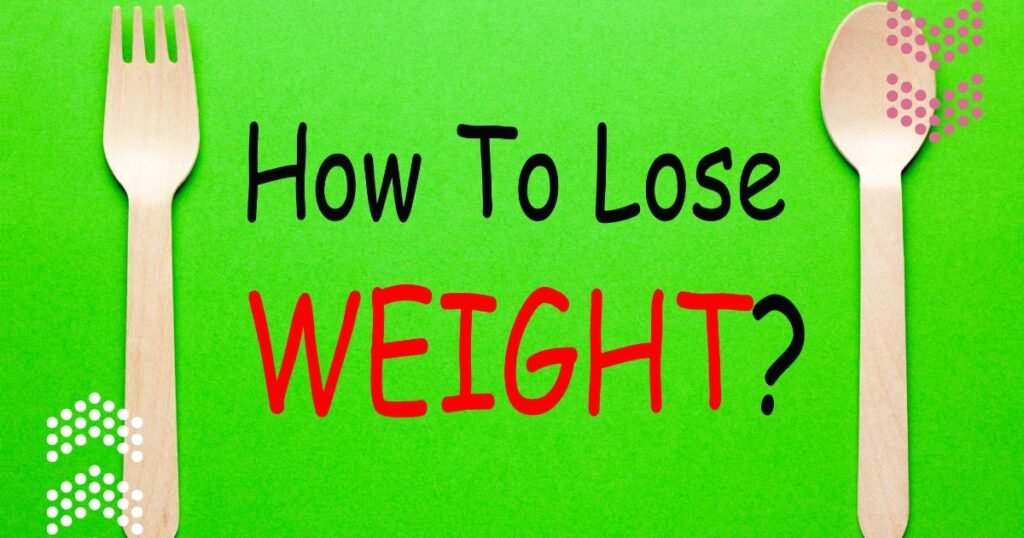Postpartum Weight Retention in Women: Understanding the Causes and Solutions for Sustainable Weight Loss
Postpartum weight retention is a natural and common concern for many women after giving birth. The changes that occur in a woman’s body during and after pregnancy make it challenging to return to pre-pregnancy weight. This weight retention is due to various factors, including hormonal fluctuations, emotional stress, and physical demands, all of which can slow down the process of losing weight. However, understanding how to manage these factors and approach postpartum weight loss safely and gradually can significantly improve outcomes.
In this article, we will explore postpartum weight retention, the causes behind it, and effective strategies for achieving sustainable weight loss after childbirth. By focusing on key areas such as hormonal imbalances, breastfeeding, sleep deprivation, and emotional health, new mothers can regain control of their bodies in a safe and supportive way.
The Role of Hormonal Fluctuations After Childbirth in Weight Retention for Women
After childbirth, a woman’s body undergoes significant hormonal shifts. These hormonal fluctuations are one of the primary reasons many women struggle to lose weight in the postpartum period. Estrogen and progesterone, the two key hormones involved in pregnancy, change dramatically after delivery. The sharp drop in estrogen levels can lead to a slowed metabolism, making it harder to burn fat. In addition, the body often retains fat as a way to support breastfeeding, which can further contribute to weight retention.
Estrogen and Progesterone Imbalance
One of the main hormonal changes after childbirth is the decrease in estrogen and progesterone. Estrogen helps regulate fat distribution, and a decline in estrogen levels can result in increased fat storage, particularly around the abdominal area. The drop in progesterone can also lead to water retention, making the body feel bloated and heavier. These hormonal changes can make it more challenging for women to shed weight during the first few months postpartum.
Prolactin and Breastfeeding
Prolactin is a hormone that stimulates milk production in breastfeeding mothers. While breastfeeding can burn extra calories—sometimes as many as 500 per day—prolactin also encourages fat storage to ensure that the body has enough energy to produce milk. As a result, some women may find it harder to lose weight while breastfeeding, especially during the early months. The body’s natural inclination to store fat for breastfeeding can make weight loss slower, even though caloric expenditure is higher. You can learn more about the role of hormonal fluctuations in postpartum weight retention here.
Safe and Gradual Weight Loss Strategies for Postpartum Women
While the desire to lose postpartum weight quickly is understandable, a safe and gradual approach is crucial. The body has undergone tremendous change during pregnancy and childbirth, and pushing too hard too soon can result in injury, hormonal imbalances, or even increased weight retention. Below are some strategies that can help new mothers lose weight in a healthy, sustainable way.
Starting with Low-Impact Exercises
After childbirth, it’s important to focus on regaining strength rather than jumping straight into intense exercise routines. Low-impact exercises such as walking, postpartum yoga, and light stretching can help the body adjust to physical activity again without causing stress or injury. These exercises also support overall well-being by improving circulation, reducing stress, and gently increasing calorie burn.
Gradually Increasing Activity Levels
As strength and energy levels return, new mothers can gradually increase the intensity of their workouts. Strength training, Pilates, and moderate cardio activities like cycling or swimming can help rebuild muscle mass and accelerate fat loss. However, it’s important to listen to your body and avoid overexertion, especially in the first few months after delivery.
Focusing on Nourishment, Not Restriction
In terms of nutrition, it’s essential to focus on nourishment rather than restriction. Postpartum women need nutrient-dense foods that will support their recovery, boost energy levels, and promote healthy weight loss. Rather than cutting calories drastically, it’s more effective to incorporate whole foods like lean proteins, fruits, vegetables, and whole grains. These foods provide essential nutrients that aid in recovery and support long-term weight loss goals.
To learn more about safe and gradual weight loss strategies, visit our blog.
The Impact of Breastfeeding on Weight Loss for New Mothers
Breastfeeding is often touted as a natural way to lose weight postpartum, as it burns extra calories. However, the relationship between breastfeeding and weight loss isn’t straightforward. While some women may lose weight quickly due to the caloric demands of breastfeeding, others may experience slower weight loss due to increased hunger and fat retention as the body prioritizes milk production.
How Breastfeeding Burns Calories
On average, breastfeeding can burn between 300 to 500 calories a day, which can contribute to weight loss. This extra caloric expenditure is necessary to produce milk and sustain the baby’s growth. For some women, this calorie burn translates to steady weight loss over time, especially when combined with a healthy diet and light physical activity.
Increased Hunger During Breastfeeding
However, breastfeeding often increases hunger levels, which can make it difficult for some women to lose weight. The body may send signals to eat more in order to maintain an adequate milk supply, leading to potential overeating or unhealthy food choices. It’s important to focus on nutrient-dense, satisfying foods that will provide the energy needed without excess calories. Learn more about the impact of breastfeeding on weight loss.
Why Sleep Deprivation in New Mothers Can Stall Weight Loss Efforts
Sleep deprivation is a significant issue for new mothers and can severely hinder weight loss efforts. Lack of sleep affects the body’s ability to regulate hunger hormones, leading to increased cravings for high-calorie foods and a decrease in the motivation to exercise.
The Role of Ghrelin and Leptin
Ghrelin is the hormone responsible for stimulating hunger, while leptin signals fullness to the brain. Sleep deprivation increases ghrelin and decreases leptin, which results in increased appetite and overeating. This hormonal imbalance can make it difficult for new mothers to lose weight, especially if they are also struggling with stress and exhaustion.
Practical Sleep Tips for New Mothers
Improving sleep quality, even in short bursts, can make a significant difference in weight loss efforts. Try to sleep when your baby sleeps, delegate tasks when possible, and create a restful sleep environment. These small adjustments can help improve energy levels and reduce overeating. To learn more about why sleep deprivation affects weight loss, explore our blog.
Postpartum Thyroiditis: How It Affects Women’s Weight Loss
Postpartum thyroiditis is an inflammatory condition of the thyroid that occurs in some women after childbirth. This condition can manifest as either hyperthyroidism (an overactive thyroid) or hypothyroidism (an underactive thyroid), both of which can affect weight management. Women with postpartum thyroiditis may find it difficult to lose or even maintain their weight, depending on their symptoms.
Symptoms of Postpartum Thyroiditis
Postpartum thyroiditis typically begins with a phase of hyperthyroidism, where the thyroid produces too much hormone. This can lead to weight loss, anxiety, and fatigue. Over time, this may be followed by hypothyroidism, where the thyroid slows down, leading to weight gain, depression, and extreme fatigue. Managing this condition requires medical intervention and careful monitoring.
Treatment and Management
For women with postpartum thyroiditis, managing weight can be especially challenging. Working closely with a healthcare provider to balance thyroid hormone levels is essential. Medication, along with a balanced diet and physical activity, can help regulate metabolism and support weight loss. Find more information on postpartum thyroiditis and weight loss here.
Managing Emotional Stress and Hormonal Changes Postpartum for Women
The postpartum period is an emotional time for many women, filled with both joy and challenges. Hormonal changes can exacerbate feelings of anxiety, stress, or even depression, which can lead to emotional eating and weight retention. Learning how to manage emotional stress is key to successful postpartum weight loss.
Mindfulness and Emotional Self-Care
Mindfulness practices, such as meditation or deep breathing, can help new mothers manage emotional stress. By being present and aware of emotional triggers, women can make more mindful choices about their eating habits. Building a strong support system, whether through friends, family, or therapy, can also alleviate the emotional burden of postpartum life.
Explore strategies for managing emotional stress during the postpartum period.
Body Image and Weight Loss Pressure for Women After Pregnancy
After pregnancy, many women feel pressure to quickly return to their pre-pregnancy weight. However, this pressure can negatively affect mental health and body image. It’s important to focus on health and well-being rather than meeting unrealistic beauty standards.
Realistic Expectations for Postpartum Weight Loss
Each woman’s postpartum journey is different, and the time it takes to lose weight varies. Setting realistic expectations is key to avoiding frustration and disappointment. Celebrating small victories, such as increased energy levels or improved strength, can make the process feel more rewarding.
Practicing Self-Acceptance
Practicing self-acceptance and body positivity can help women maintain a healthy mental outlook while working towards their fitness goals. Rather than focusing solely on weight loss, it’s important to acknowledge the incredible changes the body has undergone and embrace the new chapter of life. Learn more about body image and weight loss pressure after pregnancy.
Conclusion
Postpartum weight retention is a complex issue influenced by a variety of factors, including hormonal fluctuations, sleep deprivation, emotional stress, and lifestyle changes. By approaching weight loss gradually and focusing on overall health, new mothers can achieve their fitness goals while maintaining emotional and physical well-being.
For additional support, resources, and tips, visit our blog for more on postpartum weight retention and related topics.
You can also explore expert information on weight loss after pregnancy from Harvard Health and Women’s Health. Browse our website for more tools, resources, and support for your weight loss journey.


